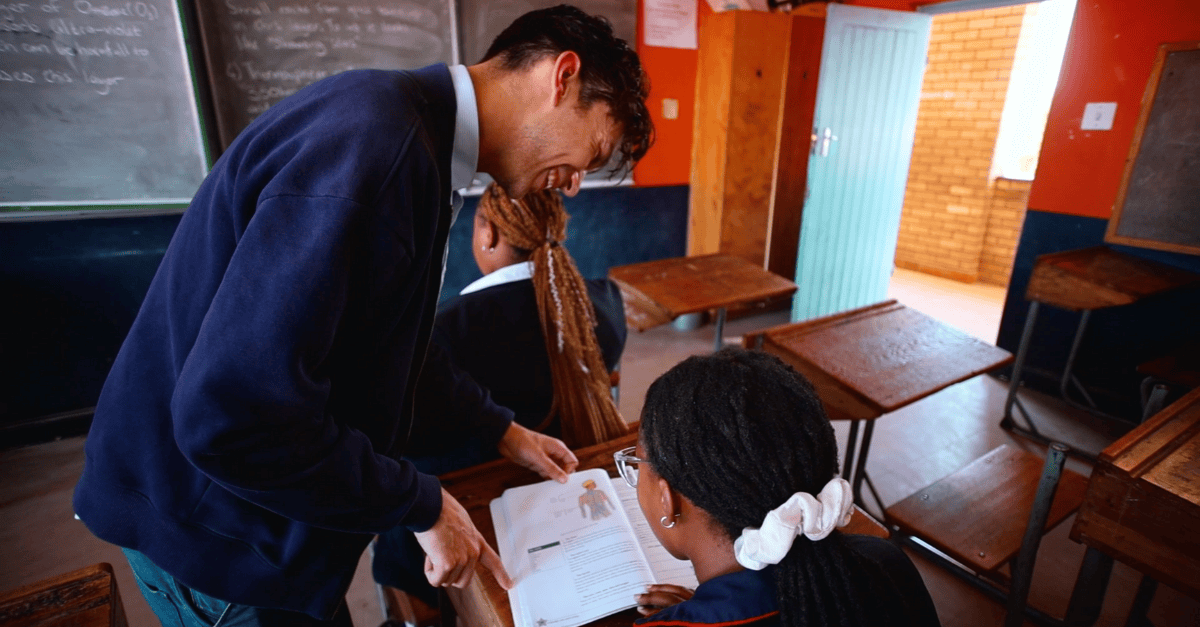EdTech's crucial role in addressing South Africa's educational challenges

BY: Tsepo Ngwenyama
There is no doubt that the current state of education in South Africa is looking very grim. Our literacy rates are ranked quite low, and the recent Progress in International Reading Literacy Study (PIRLS) report showed that 81% of Grade 4 learners cannot read for meaning. Moreover, we are dealing with an all-time high youth unemployment rate. When you look at the numbers alone, it is so easy to lose hope and be discouraged. However, at Injini, we’re seeing some of Africa’s EdTech leaders address these challenges head-on through technology and innovation.
Our recent South African EdTech Week (SA EdTech Week) underscored the collective commitment to leverage technology, innovation, collaboration, and innovative financing models to improve the access, quality, and relevance of education in Africa. In its second year, the annual SA EdTech Week, organised in partnership with the Mastercard Foundation and Wesgro, convened a diverse group of stakeholders from across the education innovation landscape. For three days, we delved deeply into a range of topics focused on the challenges and opportunities facing South Africa's education sector.
One crucial insight that emerged from these discussions is the game-changing role of government participation in EdTech companies. Government support offers opportunities for scalability and sustainability. By aligning our efforts with government initiatives, we can ensure that EdTech solutions are well integrated into the education system. This improves the reach of our innovations and enhances their impact, making them an intrinsic part of the national educational fabric.
In this context, EdTech entrepreneurs need to understand that innovations must be rooted in a deep understanding of the needs and challenges faced by our educational system. We must focus on solving real problems, improving outcomes, and ensuring that our solutions are accessible to all South African learners and educators, rather than creating technology for technology's sake.
A few themes consistently surfaced during the discussions over the three days, particularly during Government Engagement Day. First and foremost, the importance of developing EdTech that addresses specific needs and challenges faced by the education system and is built for scale was emphasised. Given that over 95% of learners in K–12 are in public schools in South Africa, this is particularly important for the success of startups focused on this segment of the market. Furthermore, the following question emerged: are we all on the same page in understanding technology’s role in education? For the ecosystem to operate more effectively and have the desired impact, we need to align on this.
In a country where educational disparities have persisted for far too long, finding innovative ways and leveraging technology to address the multifaceted challenges faced by our education system is imperative. Additionally, the role of government in addressing barriers to EdTech startups’ entry into the market requires further interrogation and a more pragmatic approach to solving them at a systemic level.
What I appreciated the most about this year's edition of SA EdTech Week was the candidness of our contributing speakers and panellists. They offered genuine thoughts and perspectives that were well-received by the audience. One particular instance that reflects this was during the panel discussion on "Multi-stakeholder Partnerships for Improving Education Outcomes" by Mr Salie Abraham, Deputy Director for Education Planning at the Western Cape Department of Education, and Gavin Weale, Founder and CEO of Digify Africa. During this discussion, the challenges that the education department is facing, such as teacher shortages and the burden of inefficient administrative processes, were openly discussed.
On a positive note, there is agreement on the need to increase the number of quality teachers and the critical role they play in improving learner outcomes. Startups like Digify Africa, alongside investors such as Innovation Edge, are addressing this by starting much earlier in children's education and providing teacher training through Meta's messaging platform, WhatsApp.
During our engagements, representatives for the Department of Basic Education and the Western Cape Education Department acknowledged these challenges and noted that they are actively seeking innovative solutions for these problems. Our discussions emphasised their openness to collaborate with EdTech companies to tackle these pressing issues if done correctly. Furthermore, SA EdTech Week reaffirmed the fact that we are at a point where government and EdTech companies can collaborate effectively to drive positive change in education.
We need to be deliberate about building EdTech solutions that are fit for the market and be intentional about being evidence-driven and focusing on data management. SA EdTech Week affirmed the need to convene the various stakeholders to address key challenges in education collectively. Moreover, this has also highlighted Injini’s role, as we sit at the intersection of education and innovation, in rallying stakeholders to make progress in addressing the daunting challenges facing the African education sector. We have the incredible opportunity to make a lasting impact on the lives of learners and educators, ultimately shaping the future of our nation.



.png)